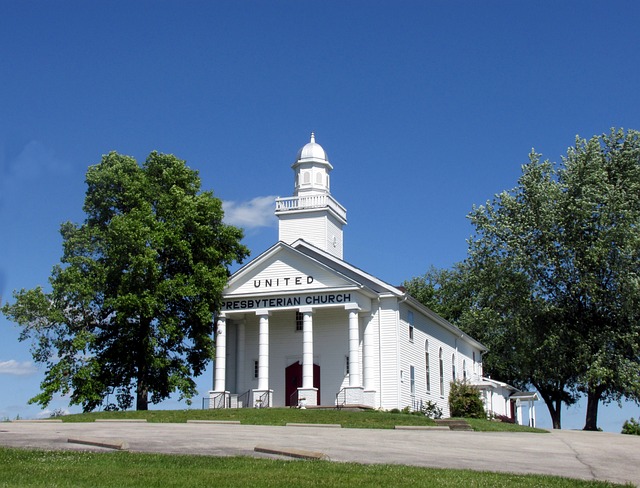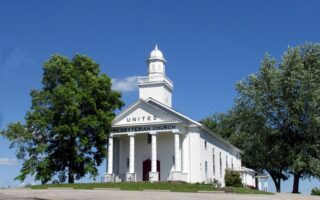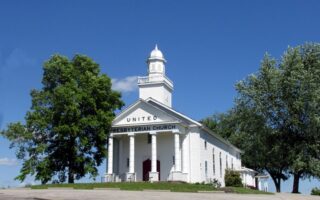Presbyterians are a unique Christian denomination known for their distinctive beliefs and practices. This introduction will provide an overview of what makes Presbyterians unique.
Table of Contents
History and Origins of Presbyterianism
Presbyterianism is a branch of Protestant Christianity that has a rich history and unique characteristics. To understand what makes Presbyterians unique, it is important to delve into the history and origins of this religious tradition.
Presbyterianism traces its roots back to the 16th century Reformation movement led by John Calvin in Geneva, Switzerland. Calvin’s teachings emphasized the sovereignty of God, the authority of Scripture, and the importance of a disciplined church structure. These ideas resonated with many people, and the Presbyterian movement quickly spread throughout Europe and eventually to the United States.
In Scotland, Presbyterianism became the established church in the 16th century, and it played a significant role in shaping the country’s religious and political landscape. The Scottish Presbyterian Church, known as the Church of Scotland, became a model for other Presbyterian churches around the world.
One of the key features of Presbyterianism is its form of church governance. Presbyterians believe in a representative system of church leadership, where elders, known as presbyters, are elected by the congregation to govern the church. This system ensures that decisions are made collectively and that the voices of all members are heard.
Another distinctive aspect of Presbyterianism is its emphasis on education and intellectual inquiry. Presbyterians have a long tradition of valuing education and scholarship. This commitment to learning is reflected in the many Presbyterian colleges and seminaries that have been established over the years. The Presbyterian Church has also been at the forefront of social justice issues, advocating for civil rights, gender equality, and other important causes.
Presbyterians also have a unique approach to worship. While there is no prescribed liturgy, Presbyterian worship services typically include elements such as prayer, scripture reading, hymn singing, and preaching. The sermon holds a central place in Presbyterian worship, as it is seen as an opportunity for the congregation to engage with the Word of God and apply it to their lives.
In terms of theology, Presbyterians adhere to the Reformed tradition, which emphasizes the sovereignty of God and the belief in predestination. This theological perspective shapes the way Presbyterians understand salvation and the role of human beings in God’s plan. While these beliefs may be challenging for some, they provide a framework for understanding the mysteries of faith and the relationship between God and humanity.
Presbyterians also have a strong sense of community and a commitment to social justice. The Presbyterian Church has a long history of involvement in humanitarian efforts, both locally and globally. From providing aid to those in need to advocating for justice and equality, Presbyterians strive to live out their faith in tangible ways.
In conclusion, the history and origins of Presbyterianism have shaped its unique characteristics. From its roots in the Reformation movement to its emphasis on representative governance, education, worship, and theology, Presbyterians have a distinct identity within the broader Christian tradition. Their commitment to community, social justice, and intellectual inquiry sets them apart and continues to guide their faith and practice today.
Presbyterian Beliefs and Doctrines

Presbyterian Beliefs and Doctrines
When it comes to religious denominations, each one has its own unique set of beliefs and doctrines that shape its identity. Presbyterians are no exception. So, what exactly makes Presbyterians unique? Let’s delve into their beliefs and doctrines to find out.
At the core of Presbyterianism is the belief in the sovereignty of God. Presbyterians firmly believe that God is in control of all things and that everything happens according to His divine plan. This belief is deeply rooted in their understanding of the Bible, which they consider to be the inspired word of God.
Another key aspect of Presbyterianism is the belief in the priesthood of all believers. Unlike some other denominations where only ordained clergy have a direct connection with God, Presbyterians believe that every believer has the ability to approach God directly through prayer and worship. This egalitarian view empowers individuals and encourages active participation in the life of the church.
Presbyterians also hold a strong belief in the importance of community and the church as a body of believers. They believe that the church is not just a building, but a living organism made up of diverse individuals who come together to worship, learn, and support one another. This emphasis on community is reflected in their governance structure, which is based on a system of representative democracy. Each congregation elects elders to serve on the session, a governing body responsible for making decisions and providing spiritual leadership.
One of the most distinctive aspects of Presbyterianism is its adherence to the Reformed tradition. Presbyterians trace their roots back to the Protestant Reformation, particularly the teachings of John Calvin. Calvin’s theology, known as Calvinism, heavily influenced Presbyterian beliefs and doctrines. Central to Calvinism is the concept of predestination, which asserts that God has already determined who will be saved and who will not. While this doctrine may be challenging for some to grasp, Presbyterians see it as a reminder of God’s sovereignty and a call to trust in His plan.
Presbyterians also place a strong emphasis on education and intellectual engagement. They believe that faith and reason are not mutually exclusive, but rather complement and inform one another. This commitment to intellectual growth is evident in the emphasis on theological education for ministers and the availability of resources for members to deepen their understanding of the faith.
In terms of worship, Presbyterians follow a liturgical tradition that includes elements such as prayers, hymns, Scripture readings, and sermons. While there is room for variation within individual congregations, the overall structure of the worship service remains consistent. The focus is on the Word of God and its application to daily life.
In conclusion, Presbyterians are a unique denomination with distinct beliefs and doctrines. Their belief in the sovereignty of God, the priesthood of all believers, and the importance of community sets them apart. Their adherence to the Reformed tradition, commitment to education, and liturgical worship style further contribute to their unique identity. Whether you are a Presbyterian or simply curious about their beliefs, understanding what makes them unique can foster a greater appreciation for the diversity within the Christian faith.
Presbyterian Church Governance and Structure
Presbyterian Church Governance and Structure
When it comes to church governance and structure, Presbyterians have a unique system that sets them apart from other Christian denominations. This system is based on the principles of representative democracy and shared leadership, which allows for a more inclusive and participatory approach to decision-making within the church.
At the heart of Presbyterian church governance is the belief in the priesthood of all believers. This means that every member of the church has a role to play in the life and ministry of the church. Unlike some other denominations where decisions are made solely by clergy or a select group of leaders, Presbyterians believe in the importance of the entire congregation being involved in the decision-making process.
One of the key features of Presbyterian church governance is the session. The session is a group of elected elders who are responsible for the spiritual leadership and governance of the local congregation. These elders are elected by the congregation and serve as representatives of the people. They work together with the pastor to make decisions about the worship, mission, and overall direction of the church.
The session is not the only governing body within the Presbyterian Church. There are also higher governing bodies, known as presbyteries and synods, which provide oversight and support to the local congregations. Presbyteries are made up of representatives from the local congregations, while synods are made up of representatives from the presbyteries. These higher governing bodies meet regularly to discuss and make decisions on matters that affect the wider church.
Another unique aspect of Presbyterian church governance is the role of the General Assembly. The General Assembly is the highest governing body within the Presbyterian Church and is made up of representatives from all levels of the church. It meets annually to discuss and make decisions on matters of doctrine, worship, and mission. The General Assembly is responsible for setting the overall direction and policies of the church.
The Presbyterian system of church governance is designed to ensure that decisions are made in a fair and inclusive manner. It allows for the voices of all members to be heard and considered. This system also provides a system of checks and balances, as decisions made at the local level can be reviewed and affirmed or amended by higher governing bodies.
Presbyterians believe that this system of governance reflects the biblical principles of shared leadership and accountability. It is based on the belief that the Holy Spirit works through the collective wisdom and discernment of the entire church. By involving all members in the decision-making process, Presbyterians believe that they are better able to discern God’s will for the church.
In conclusion, the Presbyterian system of church governance and structure is what makes Presbyterians unique. It is a system that values the participation and input of all members, and seeks to make decisions in a fair and inclusive manner. This system reflects the belief in the priesthood of all believers and the importance of shared leadership within the church. By embracing this unique system, Presbyterians strive to create a community where everyone has a voice and a role to play in the life and ministry of the church.
Presbyterian Worship and Sacraments
Presbyterian Worship and Sacraments
When it comes to worship and sacraments, Presbyterians have their own unique practices that set them apart from other Christian denominations. These practices are deeply rooted in their beliefs and traditions, and they play a significant role in the spiritual lives of Presbyterian congregations.
One of the distinctive aspects of Presbyterian worship is its simplicity. Unlike some other denominations that may have elaborate rituals and ceremonies, Presbyterians focus on the essentials of worship. The emphasis is on the Word of God, with the preaching of the Bible being central to their worship services. The sermon is given great importance, as it is seen as a means of communicating God’s message to the congregation.
In addition to the sermon, Presbyterian worship services typically include prayers, hymns, and the reading of Scripture. The congregation actively participates in these elements of worship, with everyone joining in prayer and singing. This sense of community and participation is an integral part of Presbyterian worship, as it reflects their belief in the priesthood of all believers.
Another important aspect of Presbyterian worship is the celebration of the sacraments. Presbyterians recognize two sacraments: baptism and the Lord’s Supper (also known as communion). Baptism is seen as a sign and seal of God’s covenant with His people, and it is administered to both infants and adults. The sacrament of baptism symbolizes the washing away of sin and the initiation into the Christian community.
The Lord’s Supper, on the other hand, is a commemoration of the Last Supper that Jesus shared with His disciples. Presbyterians believe in the real presence of Christ in the elements of bread and wine (or grape juice), and they view the sacrament as a means of grace. The Lord’s Supper is typically celebrated regularly, often on a monthly basis, and it is open to all baptized believers.
Presbyterians also have a unique approach to the governance of their churches, which is reflected in their worship practices. Each congregation is governed by a group of elders, known as the session, who are elected by the congregation. These elders, along with the pastor, have the responsibility of overseeing the spiritual life of the church and making decisions on behalf of the congregation.
This form of church governance is known as Presbyterian polity, and it is based on the belief in the priesthood of all believers. It emphasizes the shared responsibility and authority of the entire congregation, rather than a hierarchical structure. This democratic approach to church governance is reflected in the way worship services are conducted, with the congregation actively participating in the decision-making process.
In conclusion, Presbyterian worship and sacraments are characterized by their simplicity, emphasis on the Word of God, and active participation of the congregation. The sermon takes center stage in their worship services, and the sacraments of baptism and the Lord’s Supper hold great significance. Presbyterian worship reflects their belief in the priesthood of all believers and their unique approach to church governance. These practices are an integral part of the Presbyterian faith and contribute to the spiritual growth and community life of Presbyterian congregations.
Conclusion
Presbyterians are unique due to their emphasis on the governance of the church by elected elders, their belief in the sovereignty of God, and their commitment to the authority of Scripture. Additionally, their worship style often includes a blend of traditional and contemporary elements. Overall, these characteristics contribute to the distinctiveness of the Presbyterian tradition.


